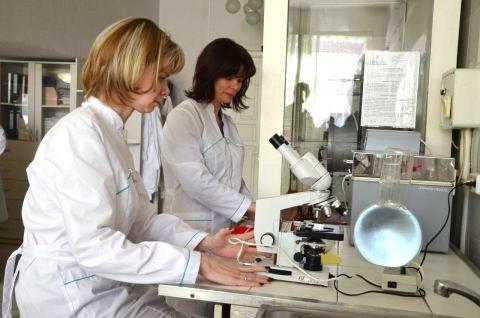“Stress” is an idea familiar to everyone. Already in 1936, Ganz Selye wrote about stress in his research, saying it is the “scent and taste of life”, and that our life does not exist without reaction on internal and external factors. It is a different matter that today, worries and trepidations add to our daily distress. The pace of life is increasing and we are multitasking more than ever, which is primarily associated with large quantities of incoming data. It turns out that whether we are internalizing all of the information that we need or consciously ignoring it, we are in a condition of stress.
It’s important to understand that heavily extended stress and intense workloads deplete all physical and psychological resources. When a person is constantly under tension, various changes to the metabolic processes occur in his body. The processes which must flow in a particular scheme, at some point in time, begin to work differently.
.jpg)
It is unlikely that anyone would be indifferent to this question. Study of stress reactions and post-traumatic stress disorders is carried out by researchers all over the world, including at South Ural State University. Doctor of Medical Science, professor of the department of Adaptive Physical Culture, Olga Tseilikman, has been studying the issue of stress for a period of 12 years, and in 2005 defended her doctor’s thesis on the topic “Pro-inflammatory and anti-inflammatory hepatotropic effects of chronic stress and the monooxygenase system of the liver”. The SUSU professor, along with her scientific adviser, has presented her research in international conferences. Their results have been recognized and published in international publications.
“Of course, we want to introduce our own words to the study of stress. Our studies are conducted non-stop. We are constantly experimenting, and also constantly contacting our Moscow and international colleagues. In our research, we have come to the point that we have reason to form the concept of stress illness, with the understanding of how to avoid it and how to help an individual who wasn’t able to protect themselves from it. Help for this is complex. But all of the necessary conditions for realizing our most ambitious plans are found at SUSU,” says Olga Borisovna.
It is worth noting that post-traumatic stress disorder (PTSD) occurs in a maximum of 20% of those subjected to extreme psychologically traumatic stresses. As the SUSU researchers suggest, the predisposition to such reactions is genetic.
“We will need to make great to find the genetic markers of predisposition to PTSD. Our research will make it possible to do professional selections in areas of increased risk. Today, such areas are many. Without question, it would be better if every one of us knew of our predispositions or lack thereof and were informed of them. At the moment we do not have such results, but we are working towards them. It is possible that we will be able to identify which combination of genes most often determine a person’s unhealthy reaction to stress,” explains Olga Tseilikman.
.jpg)
The issue of post traumatic stress disorders is so multifaceted, that it has interested and united many researchers of the South Ural State University from multiple areas for the joint development of methods to correct stress. As an example, doctor of technical sciences, professor of the department of “Expert analysis and food production quality control”, Irina Potoroko, has chosen development of production techniques of food products with special characteristics for the metabolic (non-pharmalogical) correction of stress as one of her areas of research work. As Irina Yurevna notes, she and colleagues from the SUSU Institute of economics, trade, and technology have been researching the issues associated food, which have changed drastically in recent times, for a fairly long period. This is associated with the fact that both technical approaches and food ingredients have changed to allow manufacturers to make their products more attractive. Therefore, knowledge of their exact chemical makeup can help determine, for example, if a particular person is able to consume a one product or another. Currently, the institute’s researchers are searching for a method which would allow scientists to affect the properties of raw materials in such a way as to not add artificial components which affect the human body negatively.
“By using our knowledge and scientific achievements and cooperating with researchers from all over the world, we can find methods which will allow us to obtain new special-purpose products which can stimulate the human body and support it in more difficult times, including times of stress,” says Irina Potoroko.
The SUSU researchers’ work has been recognized as a breakthrough area tied to issues of life expectancy and the preservation of health, and will be presented as part of the “5-100” program for increasing the competitiveness of Russian universities among the world’s leading research and educational centers.
Author, photo: Daria Urumbaeva




